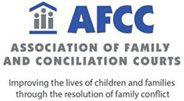
Separation & Divorce Planning
Usually at least one spouse, if not both, recognize that the marriage is no longer working well before filing for divorce. However, uncertainty about managing the finances of living separately, or shared parenting responsibilities, delays the couple’s separation. Consulting a family law attorney specialized in divorce and child custody matters early can assist the couple in moving forward while addressing these concerns responsibly by negotiating an interim Separation Agreement addressing custody and financial arrangements until the divorce is final.

Child Custody & Parenting Access
Children do not choose divorce – nor should they be asked to choose between parents, whether for holidays or long-term custody. Ideally, divorcing parents should place their children’s best interests ahead of their own in making decisions about sharing time with each parent, their education and outside activities, letting kids be kids. But parents’ fears about losing everyday access to their children often prolong divorce to their children’s detriment.

Child Support
Divorcing parents each have a legal duty to provide necessary financial support for their children’s general well-being, including work-related childcare, health insurance and extraordinary medical expenses (e.g. orthodonture). However, the burden of support may fall more heavily on the non-custodial parent with whom the children may spend fewer than 35% of overnights, effectively paying support as though the other parent were the ‘sole parent’. Recent Maryland legislation partially remedies this imbalance, by awarding child support on a ‘shared’ basis for parents who host their children more than 25% of overnights, but awards so far remain nearly as lopsided as ‘sole’ awards, giving non-custodial parents the incentive to negotiate access plans seeking parental financial advantage, sometimes to their children’s detriment.

Alimony & Spousal Support
After divorce, a dependent spouse may have a claim to spousal support (alimony), either transitional or indefinite, because of earning disparities during the marriage. The amount of spousal support depends upon the length of the marriage, respective ages, health and needs of the parties, available family resources and the causes leading to the breakup of the marriage. However, indefinite alimony is generally disfavored by the courts in favor of transitional alimony for a period of years. And where a spouse is voluntarily unemployed or underemployed the court can impute income to reduce spousal support.

Marital Property
Marital property – your home, investments, retirement account, or business – may be divided by agreement or court order to allocate interests equitably (but not necessarily equally) between divorcing spouses. Courts typically remedy the imbalance by issuing a monetary award transferring cash between divorcing spouses. However, where premarital contributions to purchase the marital home or premarital retirement savings are excludible, as are non-marital gifts or inheritances received during the marriage. Valuation of a business’ current value based on prospective earnings is complex and depends upon expert analysis. This is a domain in which my expertise can help untangle the parties’ respective interests to negotiate a fair settlement.

Collaborative Divorce
As an alternative to costly litigation that erodes co-parenting cooperation, the Collaborative Divorce Process encourages parties to collaborate in consulting a parenting coordinator to directly negotiate the terms of custody arrangements that promote each parent’s healthy relationships with their children. Likewise, in the collaborative process I refer parties to a neutral Certified Divorce Financial Advisor (CDFA®) to develop scenarios for property division and prospective family support with the support of collaborative lawyers and coaches (social workers). Parties are empowered by this process to develop creative solutions that suit their families’ needs and circumstances, sometimes agreeing to arrangements that are more generous than the law strictly requires.





















